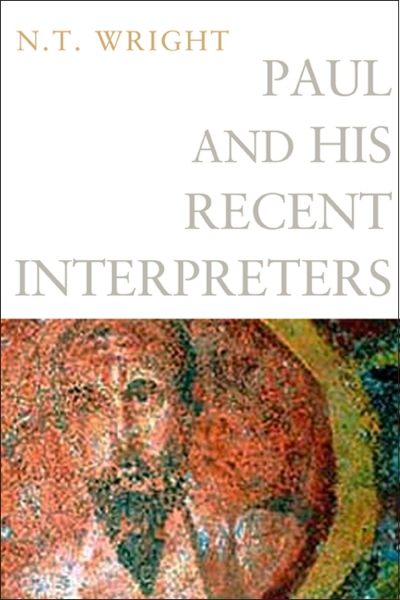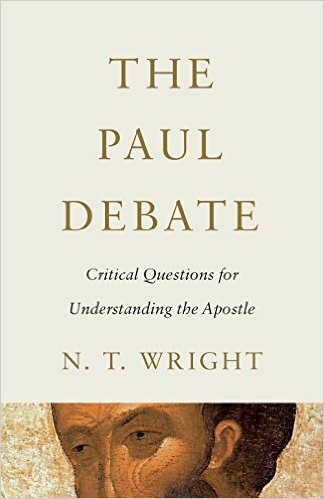N. T. Wright: Paul and His Recent Interpreters and The Paul Debate, reviewed by Amos Yong

 N. T. Wright, Paul and His Recent Interpreters: Some Contemporary Debates (Minneapolis: Fortress Press, 2015), xxiii + 379 pages.
N. T. Wright, Paul and His Recent Interpreters: Some Contemporary Debates (Minneapolis: Fortress Press, 2015), xxiii + 379 pages.
N. T. Wright, The Paul Debate: Critical Questions for Understanding the Apostle (Waco, Tex.: Baylor University Press, 2015), xi + 110 pages.
I must confess that I am writing this double-review with both volumes of N. T. Wright’s Paul and the Faithfulness of God (Fortress Press, 2013), sitting on my desk, partially open, and partially read. I must also come clean that I have intentionally decided to read first the two books under review in part because I am unsure when I will finish the Wright magnum opus (so far), but I have read and been positively challenged both by Wright’s Christian Origins and the Question of God series which go back to the early 1990s (to which Paul and the Faithfulness of God adds the fourth installment) and his earlier book on Paul (What Saint Paul Really Said, Eerdmans, 1997). For those who find themselves in situations somewhat like mine, I say up front: Paul and His Recent Interpreters (PRI) and The Paul Debate (PD) are very different books that interface with Paul and the Faithfulness of God (PFG) in contrasting ways, and will not in the end alleviate from those serious about the New Testament the burden of taking up and persisting through the latter books. Let me explain.
Wright tell us in the preface to PRI that as originally imagined, it intended to serve as an introduction to PFG, particularly in terms of mapping the trajectories of Pauline scholarship in the modern era. However, the material “quickly became more complex than I had imagined, to the point where it could no longer be contained within the larger book” (PRI, xvii). One response might be that tacking on the 350 plus pages of PRI to the beginning of PFG would have resulted in an expansion of book 1 to about the current size of book 2; on the other hand, the complicating factors appear to be less about size or length than with conceptuality, and perhaps setting off PRI on its own account can be appreciated only after working through the details of PFG.
What PRI does, then, is situate PFG within the broader landscape of Pauline studies, particularly around the turn of the twenty-first century. The three parts of PRI unfold three dominant conversations about Paul: 1) on the Jewishness of the apostle, particularly as negotiated and disputed after E. P. Sanders’ Paul and Palestinian Judaism (1997); 2) on Paul as apocalyptic thinker and theologian from Ernst Käsemann at mid-century through J. C. Beker, J. L. Martyn, and Douglas Campbell more recently; and 3) on the social world of Paul and the apostolic Christians, particularly as initiated and developed by the work of Wayne Meeks and David Horrell. While the discussions are explicated along separate tracks (in the three parts), Wright’s account clarifies the interconnections while also locating how these important issues are relevant to other developments in Pauline scholarship, whether the so-called “New Perspective,” those working in empire studies, or the philosophical-continental Paul. Along the way, we get glimpses about how Wright’s own constructive vision in PFG has been shaped in dialogue with these developments. In particular, we understand better Paul, not to mention Jesus, as Jewish and apocalyptic visionaries, but in ways that make sense given the social and historical world of first century Palestinian life under the shadow of the Greco-Roman empire and amidst Hellenistic culture.
Category: Biblical Studies, Spring 2016


